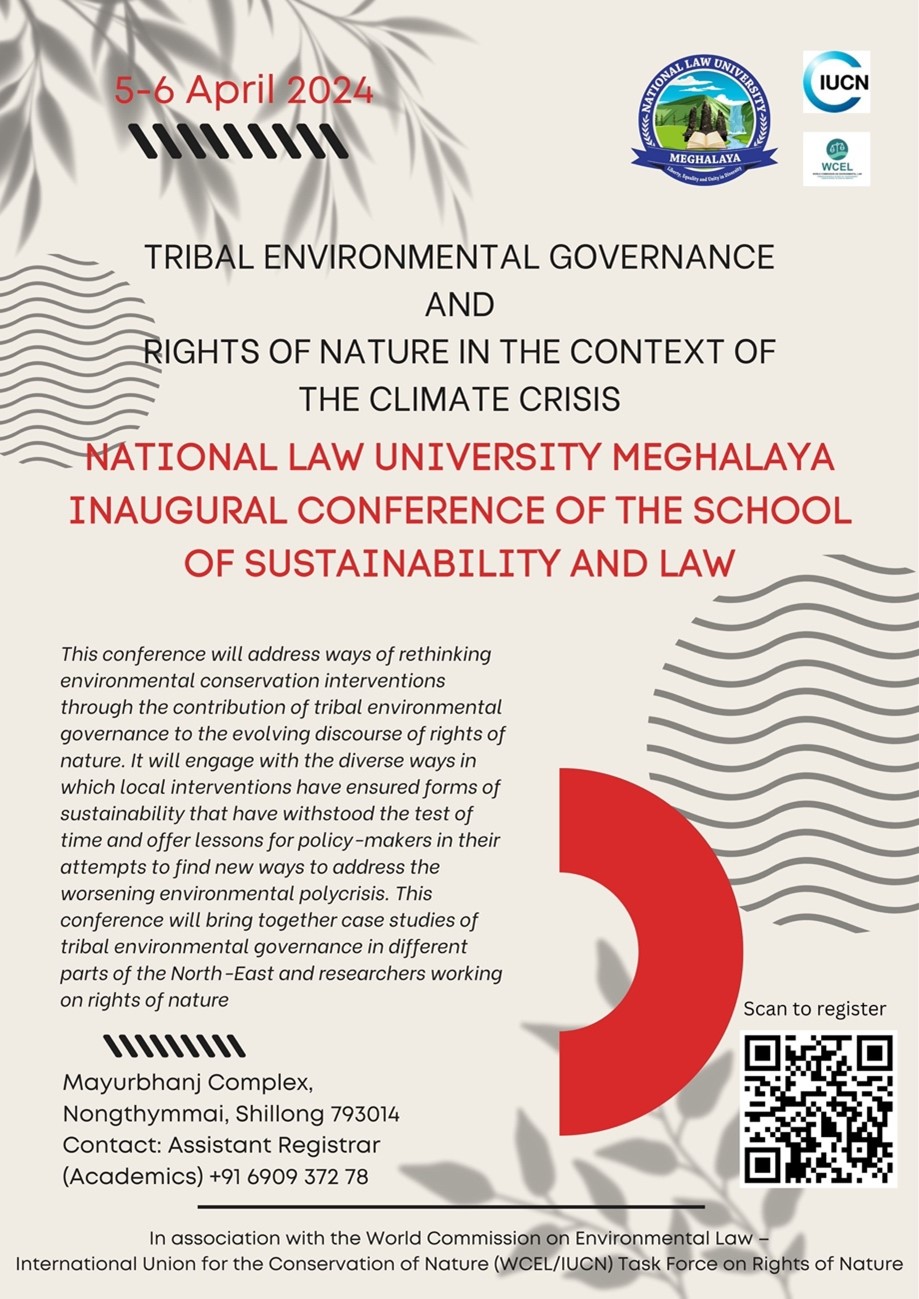The conference on "Tribal Environmental Governance and Rights of Nature in the context of the Climate Crisis" took place in India
The event was organized by the School of Sustainability and Law, National Law University, Meghalaya in Shillong, in association with IUCN WCEL Task Force on Rights of Nature.
The conference on ‘Tribal Environmental Governance and Rights of Nature in the Context of the Climate Crisis’ organized by the School of Sustainability and Law, National Law University, Meghalaya in Shillong on 5-6 April 2024 provided the first structured endeavour to discuss rights of nature in relation to indigenous (tribal) environmental governance in tribal communities in the North-East of India and beyond.
This included general discussions on tribal ecological knowledge and the law, and on decentralised governance and tribal ecological knowledge, focusing for instance on forests and agro-ecology. The bulk of the conference then consisted of a diversity of case studies exploring different ways in which tribal communities govern their environment. This included examples focusing on specific tribes in different states, including Assam, Manipur, Meghalaya, Nagaland and the Union Territory of Ladakh.
The different case studies discussed tribal governance from a diversity of disciplinary perspectives, including cultural and creative studies, conservation science, development studies, geography, history, law, political science, sociology, technology and zoology. The papers presented engaged with specific elements of nature, such as rivers; with landscape management; with tribal urban governance concerning water; with forest protection and specific knowledge systems embedded in the environment in which communities live. Some papers focused specifically on gender concerns and on conflict resolution while some case studies looked at the governance of nature in terms of broader challenges linked to climate change.
Overall, the conference indicated that there is a multitude of entry points to discuss what is considered elsewhere specifically in terms of rights of nature. It confirmed that there are various ways in which ecocentric perspectives can be conceived and implemented. In various cases, this does not fit the increasingly mainstream understanding of rights of nature, in part because the questions raised by the protection and use of nature at the level of communities dependent on specific environments engages with a much broader set of elements than what is often assumed. There is a great deal that tribal perspectives can bring to an understanding of socially equitable and just ecocentric perspectives.
Conference Poster:

